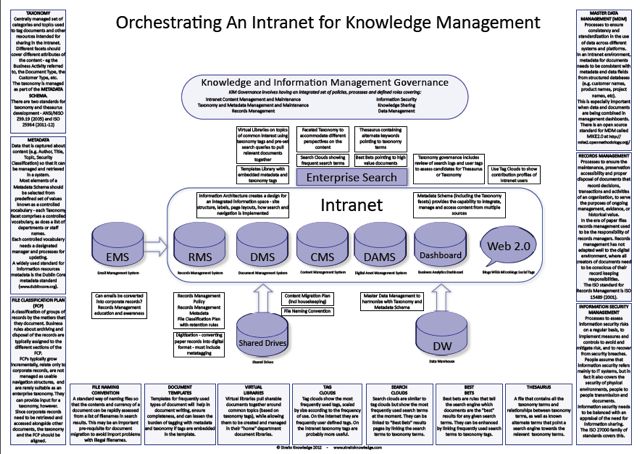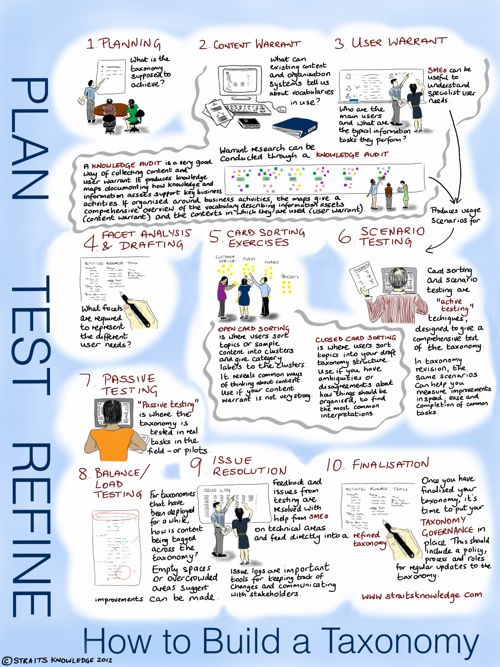Aug 16
Straits Knowledge is Hiring!
Straits Knowledge is looking for someone special to join our team. The following PDF document states in detail the kind of person we’re looking for. Take a look at it and send us your résumé if you fit the bill and are interested.
http://www.greenchameleon.com/uploads/RecruitmentAd_short_2012V03Final.pdf
Aug 14
Conference Season Tis Upon Us
September through November is KM conference busy season – if you’re in the neighbourhood do consider attending these fine events, and drop me a line if you’d like to meet up or say hello:
I will be speaking and leading workshops at the following events:
6-7 September 2012 Singapore KM Singapore Presentation on “Why Senior Managers Should Care About KM: Lessons from the SMRT Committee of Inquiry”
8-9 October 2012 Kuala Lumpur KM Malaysia Keynote on “Leading the KM Culture to Improve Performance”; Chairing Panel Discussion on “Leveraging KM for Optimal Performance”
16-19 October 2012 Washington DC KM World Keynote Dialogue on “KM Saves Lives”; Workshop on “Conducting Knowledge Audits”
17 October 2012 Washington DC Taxonomy Bootcamp Closing Keynote on “Taxonomy Beyond the Enterprise: Knowledge Organization Systems, Semantic Web, Big Data & Next Gen Search”
27 October 2012 Baltimore ASIST 2012 Full day workshop with Prof Denise Bedford on “Knowledge Audits from A to Z”
6 November 2012 Singapore KM Asia Keynote on “High Stakes Knowledge Management”
Jul 21
Tripadvisor’s Contribution Model Applied
One of my current challenges is to find ways to attract employees at our company to contribute their knowledge to our global knowledge sharing platform. This is not an easy task because many people have difficulties to see the personal benefits of sharing their knowledge with a large, mostly anonymous crowd of people. I think this is a common issue of user adoption and I looked for benchmarks in the consumer world.
Tripadvisor is one of the examples that has successfully attracted many contributions; people are sharing their travel experiences for restaurants, hotels and even tourist attractions on a global platform. I am sure for most of you it’s a valuable source of information, but how many of you have actually written a review? I have tested this and the kind of feedback I got from Tripadvisor motivated me so much that within a few months I was a senior contributor. Try it yourself and read this interview with their CEO for more insights.
So, I took this experience and implemented a contribution profile for our internal global knowledge sharing platform.
Jun 14
Business Jargon to Avoid
I found myself chuckling to a few of the business jargon compiled by the writers of this Forbes article, basically because I’m guilty of using them too. My more common abuses are: leverage, learnings and impact. I would add to the list: paradigm shift, mental model, best of breed, turnkey solution, disruptive technology. When I was on sabbatical at UN FAO, I was even reminded that knowledge management is a jargon!
May 17
Google Finally Comes Out of the Closet on Taxonomies
So for the longest while, Google has been the boogie bear of taxonomists, with senior executives lying in wait to pounce on innocent taxonomy projects with the battle cry “why do we need a taxonomy, let’s just get Google!”.
We’ve known for years that Google uses classification in its search algorithms and in its ancillary services but today Google finally came clean with its new Knowledge Graph service “With the Knowledge Graph, Google can better understand your query, so we can summarize relevant content around that topic, including key facts you’re likely to need for that particular thing. For example, if you’re looking for Marie Curie, you’ll see when she was born and died, but you’ll also get details on her education and scientific discoveries.” Is that taxonomy work or is that taxonomy work?
Sitting behind Knowledge Graph is a 500 million entity ontology, with 3.5 billion defined relationships and attributes – though the words ontology or taxonomy are never used. Exciting in itself, as it evidently exploits the growing maturity of the semantic web and linked data, and the intelligence you can extract from billions of search patterns, to enhance taxonomy work in unprecedented ways. But also a major vindication for the faithful few who have remained steadfast in their belief in taxonomy over magic. BTW, I’m hoping to explore some of these “taxonomy beyond the enterprise” themes in a keynote at Taxonomy Bootcamp later this year. The times they are a changing!
May 14
Orchestrating the Intranet for Knowledge Management

Patrick’s taxonomy development infographic has sparked off a little friendly competition in the office. The infographic you see above is my attempt at explaining the different pieces of an intranet puzzle that KM practitioners may have to deal with, and how they all fit together.
This is the link to the pdf version – Intranet_Poster.pdf. Note that it is formatted for A2 size and you will need to set your printer to print within paper size for smaller sizes.
I would like to commend Patrick for his sportsmanship, for even though my poster is evidently better than his, it did not hold him back from providing some of the explanations that you see on the poster.
May 02
A Prezi on the Taxonomy Development Poster
Here’s an interactive version of the Taxonomy Development Poster I posted yesterday:
May 01
Taxonomy Development Infographic

Here is a poster design I’ve been working on for a while – it summarises the empirical, evidence based taxonomy development process we recommend.
This is the link to an A4 pdf version.
This is the link to an A3 pdf version.
We’re going to look at costs/prices for printing this on high quality poster paper and shipping it if there’s a demand. Let us know!
Apr 17
Visual Collections for Sharing and Collaboration
Since a few months there is a big trend on the web: visualisation of data and information. It is definitely not a new trend, though it is accelerating fast; new tools like visua.ly have been launched and Pinterest has developed to the third most popular social sharing tool in 2012. Why is this the trend happening, and what can we learn from it in the context of knowledge sharing and social collaboration?
In our current world two things are happening: we are exposed to much more data and information; and we are overwhelmed with these with an increasing speed. Pictures, photos, illustrations, visualisations are not only eye-catching but also help us to grasp the content much faster. In the past, overviews of news have been a simple list of headlines. Illustrations help readers to make quick (not necessarily right) decisions to jump to an article or not. Many tools take advantage of that and two show-cases are Pulse News and Google Currents.
What does this mean for knowledge management and social collaboration?
Apr 03
Fads, Knowledge Management and Identity Angst
Venkatesh Rao over at Forbes has a perceptive article on the recent trend of the enthusiasm for “big data” resulting in everybody laying claim to the title “Data Scientist”. But his comments have strong resonances with all sorts of hype-responses – KM suffered from this in the early years and every claim for a replacement therapy/technology for KM ever since has done so too. Here’s the relevant section of Venkatesh’s post – sound familiar?
“At any given technology conference, you will find the following types:
- People with chips on their shoulders about being marginalized by the new trend.
- Long-ignored people who suddenly find that they’ve turned into stars, blinking in the spotlight.
- People who feel under-appreciated and powerless.
- People who cannot believe how much power they suddenly have.
- People who secretly feel like fakes and are feeling either gleeful or ashamed about it.
- People who are cleverly switching out their titles from the last hyped fad for the closest one they can find in the new one.
- People upset that other people are taking credit for their old wine by putting it into new bottles.
- Older people insisting nothing has changed (read: “therefore I am still the expert” ).
- Younger people insisting everything has changed (read “the old fogeys know nothing; hire me instead” ).
- People excited by anything new and shiny, whether or not they understand it.
- Jaded people on paid-for junkets.
- Uber-sociable types for whom it is all one big party.”


